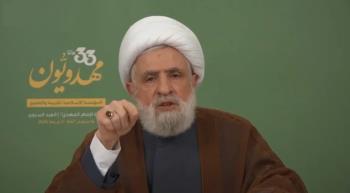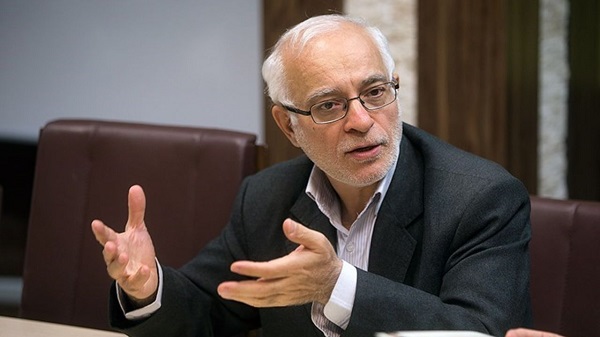Alwaght- after almost two weeks of deadly clashes between Azerbaijan and Armenia military forces over the disputed Karabakh region, the foreign ministers of the two neighbors visited Moscow on Saturday and struck a deal after negotiations.
Since the start of the clashes in late September, over 300 were killed and hundreds were injured from both sides. Additionally, many residents of the contested region fled their homes as the clashes, unprecedented since the 1994 ceasefire, kept unfolding.
To get a bigger picture of the aspects of the recent talks and the prospects of the truce and also the interests of the actors engaged, Alwaght has talked to Hassan Beheshtipour, an Iranian expert of Eurasian affairs.
The first question was about the heavy clashes, advances made by Azerbaijan, and how far the ceasefire could sustain. Mr Beheshtipour said that the cessation of hostility is a good move if it is a prelude to comprehensive and serious negotiations for lasting peace. But if it does not conclude in serious dialogue, we would continue to see the trend we have been seeing since 1994: the state of war and peace. And this only benefits the parties only seeking instability, arms sales, and state of armed peace. “So we can say that the very start of talks to stop the human and material casualties and reach a sustainable peace is the right move.”
Alwaght asked for an assessment of the will of the warring sides to move towards peace. The expert replied that if it was not for the Russian pressures, Azerbaijan, thinking that it had the upper hand on the battleground, would have continued the battle. Moscow very likely persuaded Baku that the crisis has no military solution and that it cannot take back its occupied territories relying on its military force.
“The two sides appear to have bought the logic that they need to go to the negotiating table and end the crisis by dialogue. After all, the Karabakh crisis in addition to Azerbaijan and Armenia has other regional and international sides.”
Mr Beheshtipour was asked why the Azerbaijani President Ilham Aliyev recently said that negotiations are the only solution while in the beginning he insisted that the clashes will continue until the end of the occupation of the Karabakh region by Armenia. He answered that Baku since the beginning knew that it lacked the adequate military power to liberate the claimed territory but it was hopeful that with propaganda and some military operations, it could take back parts of Karabakh and use them as a bargaining chip and an achievement in the talks with Yerevan.
“Going to the negotiations after some fight was perceivable from the behavior of both sides. The Turkish supports to Azerbaijan were mostly verbal and in line with the Ankara interests. On the other side, the interests of Russia, which has friendly ties with the two countries, necessitated containing the crisis. Moscow, having the experience of Ingushetia, Chechenia, and Dagestan crises, was determined to block entry of terrorist and takfiri groups to the Caucasus, a region highly damageable from this aspect.”
Alwaght asked how successful the two countries could be in reaching a peace deal with the consideration of the interests of various regional and international players and also the views held by Baku and Yerevan to Karabakh crisis. Mr Beheshtipour said that the biggest challenge is the wide gap between the visions of the two sides. The Azerbaijani side, he added, argues that the solution lies at the end of the occupation of Karabakh and seven other regions by Armenia. On the opposite side, Armenia insists that there should be a reference to the opinion of the majority of people of Karabakh who are ethnic Armenians. It argues that this self-determination right should stand as a basis for any other measures.
“But there is another major challenge, and it is the competition of regional and international actors. For example, Ankara exploits the crisis in Karabakh to regulate its relations with Yerevan. It also provides logistics and military support to Azerbaijan in search of a toehold in that region. Russia, with very close ties to Armenia, is not unwilling to make a pressure instrument from the recent conflict against Yerevan as the Armenian Prime Minister Armen Pashinyan recently showed pro-Western tendency. The United States by searching for justification of its presence in Southern Caucasus and expanding NATO toward Georgia and Azerbaijan wants to abuse the regional crises, though facing strong Russian sensitivity. So, the Karabakh crisis is tied to these competitions and responses. I think that if Russia, Iran, and Turkey cooperate, like their cooperation to de-escalate the tensions in Syria, they can push the talks between Azerbaijan and Armenia to fruition.”
How can the trio’s Syria pattern be adopted to Karabakh whose crisis is smaller than that of Syria?
“We should know that the Syrian crisis nature in terms of quality, quantity, the crisis-making factors, and the influential factors is fully different from the Karabakh crisis. So, I cannot see any similarity between them. But giving the Syrian example was to say that when some countries have a successful cooperation experience, like the Iranian-Russian partnership for Tajikistan peace or the Russian-Iranian-Turkish cooperation under the Astana peace process for Syria, they can draw upon their experience to settle the Karabakh crisis.”
The Iranian expert underscored the power of the trio to maneuver for peace due to closeness to the two warring countries and also their historical role in Karabakh more than in Syria. “If Russia and Turkey step in with good faith and avoid regional competition, they can cooperate in Karabakh. It would be beneficial for the conflicting sides and the three regional powers. Stability and security in Southern Caucasus can expand tourism, road and rail transportation, provide access to Eastern Europe markets, and promote new regional cooperation that can tackle the influence pursued by international powers like the US and also the Israeli interventions in the Caucasus. Russia looks at the region as its backyard, but certainly a solution to the crisis is unattainable without Iran and Turkey’s participation.



























